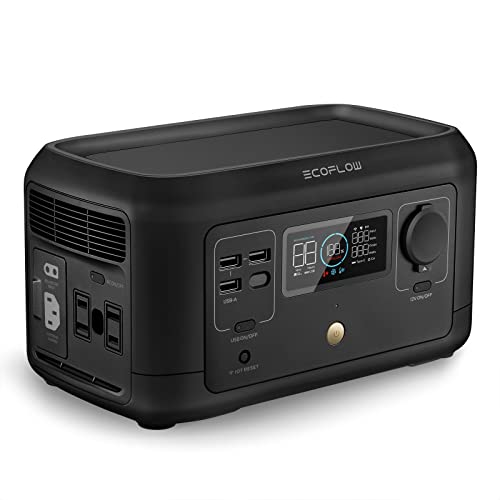When it comes to choosing the right portable power station, the sheer number of options available can be downright overwhelming. But fret not, because we’re here to unpack and compare two popular models that are making waves in the portable energy world: Jackery Explorer 500 and EcoFlow River Mini. Let’s dive into what each has to offer and help you decide which one might be the right plug for your life unplugged.
Design and Portability
Both power stations are designed with portability in mind but they sport different sizes and weights. The Jackery Explorer 500 comes in at a weight of 13.3 lbs and dimensions of 11.8 x 7.6 x 9.5 inches. On the other hand, the EcoFlow River Mini is lighter and more compact at 6.3 lbs and measures 9.8 x 5.5 x 5.2 inches. If mobility is your main concern, the EcoFlow River Mini takes the cake in this department.
Battery Specs and Power
Power is where we start to see some significant differences. The Jackery 500 boasts a 500W pure sine wave inverter and a lithium-ion battery with 518Wh of energy storage. Meanwhile, the EcoFlow River Mini offers a 300W pure sine wave inverter and has a 210Wh lithium-ion battery. If you need more power and battery capacity for larger devices or extended usage, the Jackery might be more aligned with your needs.
Charging and Outputs
Looking at charging options and outputs, both devices offer AC and DC outlets, as well as USB-A ports. The Jackery 500 features three USB-A ports, one AC outlet, and two DC outlets. EcoFlow River Mini, however, steps it up on the versatility front with two AC outlets, one DC outlet, and three USB-A ports. Moreover, the EcoFlow River Mini Wireless version adds USB-C (100W) and wireless charging to its arsenal.
Solar Charging Capabilities
Both power stations can be charged via solar panels, which is excellent news for fans of renewable energy. However, the time it takes for a full recharge can vary depending on the intensity of sunlight and the type of solar panel you’re using. The Jackery Explorer 500 might take approximately 9.5 hours to fully charge with solar panels, while the EcoFlow River Mini’s solar charging time ranges between 3 to 6 hours.
Lifespan and Cycle Life
Durability and longevity are key factors to consider. The Jackery 500 claims to retain 80% capacity after 800 charge cycles, while the EcoFlow River Mini advertises 80% capacity after 500 cycles. For those counting on their power station to last through numerous adventures, the Jackery 500 might have an edge in the long run.
Environmental Considerations and Safety
Both brands take safety seriously, incorporating advanced battery management systems and multiple forms of protection such as overcharge protection, short circuit protection, and temperature regulation. This ensures you can use these stations not just for convenience but also with peace of mind.
Conclusion: Which Power Station Is Right for You?
Ultimately, the choice between the Jackery Explorer 500 and the EcoFlow River Mini comes down to your specific power needs, portability requirements, and budget. Each has its unique strengths, and the best choice will align closely with how you intend to use your portable power station.
| Feature | Jackery Explorer 500 | EcoFlow River Mini |
|---|---|---|
| Weight | 13.3lbs (6kg) | 6.3lbs (2.85kg) |
| Dimensions | 11.8 x 7.6 x 9.5 inches | 9.8 x 5.5 x 5.2 inches |
| Battery Capacity | 518Wh | 210Wh |
| Inverter Output | 500W (1000W surge) | 300W (600W surge) |
| USB-A Ports | 3 | 3 |
| AC Outlets | 1 | 2 |
| DC Outlets | 2 | 1 |
| Cycle Life | 800 cycles (80%) | 500 cycles (80%) |
| Solar Charging Time | ~9.5 hours | 3-6 hours |




Leave a Reply